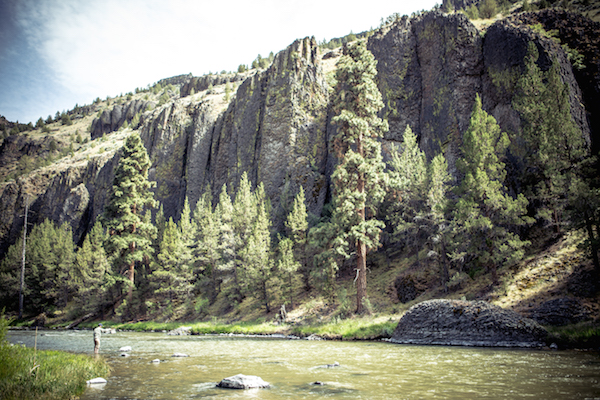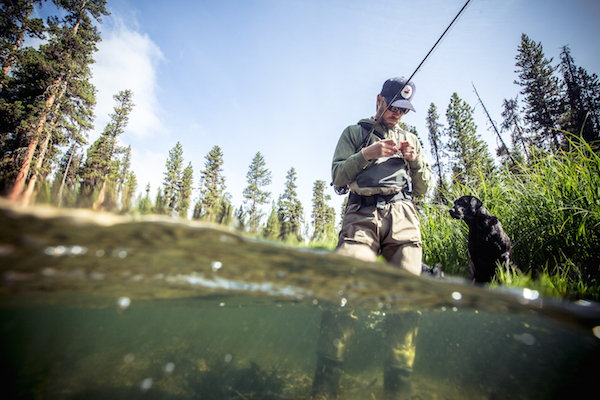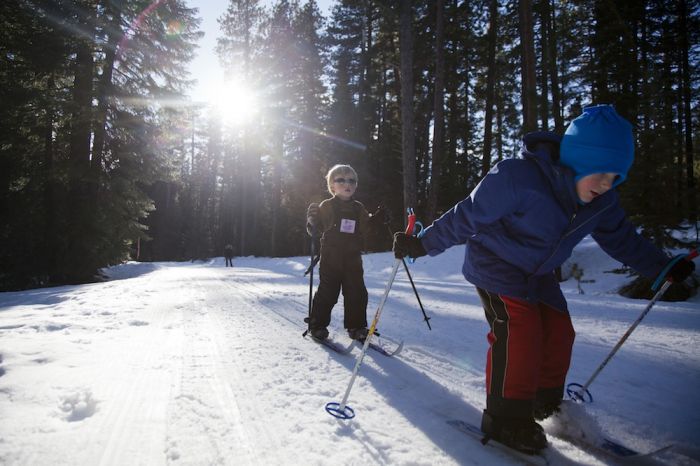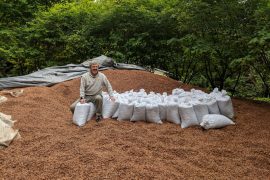Alan Peterson was an avid outdoorsman, but he didn’t even own a fly rod when he landed his first job out of college with Loon Outdoors, a small fly-fishing company in Boise.
In 2007, he had an opportunity to buy the business and seized it. Three years later, Peterson moved the headquarters to his idea of an outdoor mecca: Ashland. Peterson’s brother-in-law, Brett Zundel, bought out the other business partner in 2012, a year after Peterson’s and Zundel’s wives both gave birth to baby girls on the same spring day.
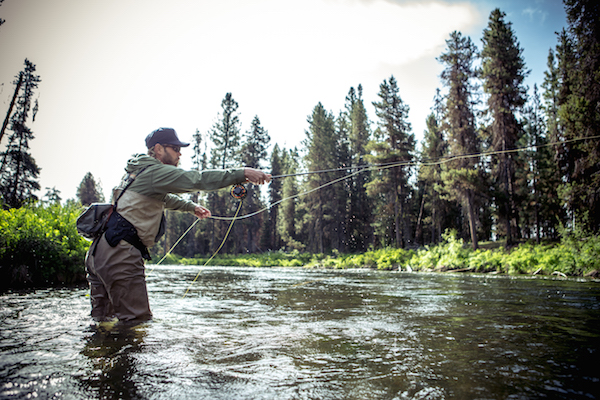
“It takes a village, and Ashland is a great village for our kids,” said Peterson. “Company wise, we as a leadership staff have been able to step away from the day-to-day operations and really focus on growth and planning. While living in Boise we often ended up working in our warehouse, neglecting to put time into the future of Loon.”
Eight employees and a handful of contracted sales reps make up the Loon team, but their reach is massive. Loon products are in every specialty fly shop and big box store in the country, as well as shops in Europe, Australia, New Zealand, South Africa, Japan and anywhere else with a major fly-fishing market.
Many of the things that are on or in a flyfisherman’s vest are Loon Outdoors’ business—line weights, strike indicators, wader repair, line cleaner, clippers, forceps and floatants. Floatants, solutions used to keep dry flies afloat, are the core of that business.
Loon Outdoors distinguishes itself in its approach to products that are used in delicate ecosystems. All of its products are safe for fish, fisheries and fishermen. Their floatants, sinkets, and cleaners are solvent-free and consist of water-soluble components that perform without polluting the water: Reusable and biodegradable weights and indicators ensure that lost tackle doesn’t harm wildlife.
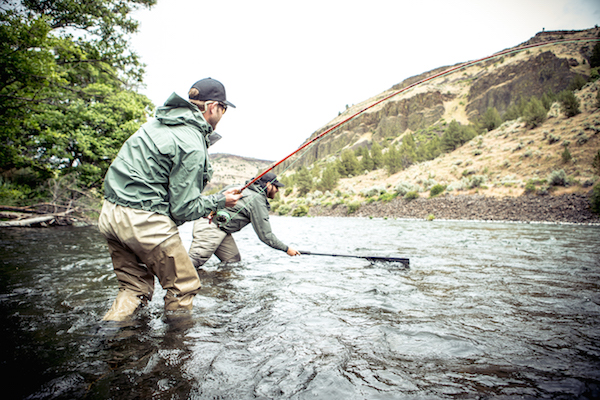
“There can be a strong barrier of entry to fishing for people,” said Peterson, 36. “With our branding and message, we want to show a spirit of youth, conservation and adventure for people who love the outdoors just like we do.”
Loon products are sold only through outdoors and fly shops, a model which resists the online-focused sales strategy of many products-based companies. “We choose not to sell direct, but instead support dealers and encourage our customers to visit local fly shops,” said Peterson.
Zundel’s wife, Andrea, reinvented Loon branding with modern culture in mind. A former graphic designer for Billabong, she gave Loon an approachable, simplified look.
Central to Loon’s efforts are promoting “catch and release” practices, ecosystem health and streamside etiquette. Loon supports grassroots effots such as Native Fish Society’s social media campaign #keepemwet, an effort to increase angler awareness about the negative effects of air exposure on wild fish.
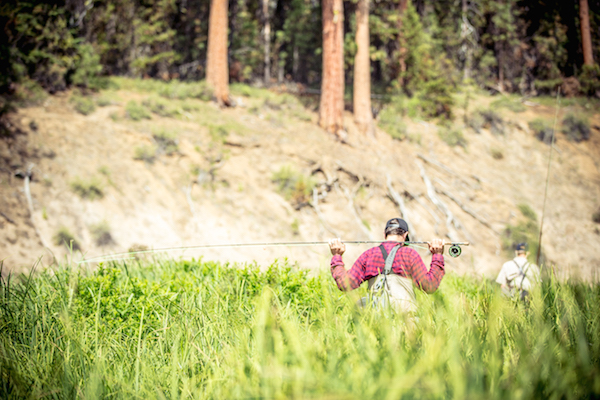
Andrea is also disseminating the brand identity through apparel. She designs posters, hats, and shirts that promote the brand and the passions of the families who own it. From growing beards to “Fishing with a Conscience” to the State of Jefferson, the apparel represents Loon’s humorous and serious sides.
“We have what we call the ‘Jefferson Dilemma’ in Southern Oregon,” said Peterson. “The outdoors is so concentrated, yet so diverse, that on any given day we could be pulled in many directions: Go ski? Surf? Fish? Raft?”
Time spent in the outdoors inspires each step the company takes. The Loon team noticed the growing number of anglers who were using their own tied flies on the waters, and saw the fly-tying market as the next big piece in the market share. Loon expanded into non-toxic fly-tying products, keeping tying benches free of harmful fumes found in other tying products.
The upshot: it’s a year-round hobby, so sales aren’t focused exclusively on fly-fishing seasons. Anglers can sit at their fly-tying tables any time of the year, day or night. It’s also a creative endeavor, a skill that lends itself to an online community.
To build this market and community, Loon offers a free, online fly-tying video series hosted by expert fly-tyer Matt Callies. “We have a large and growing number of people watching and interacting on the platform at the same time,” said Peterson. “Each viewer is helping solidify a community of anglers that is engaged in technology and the outdoors.”
